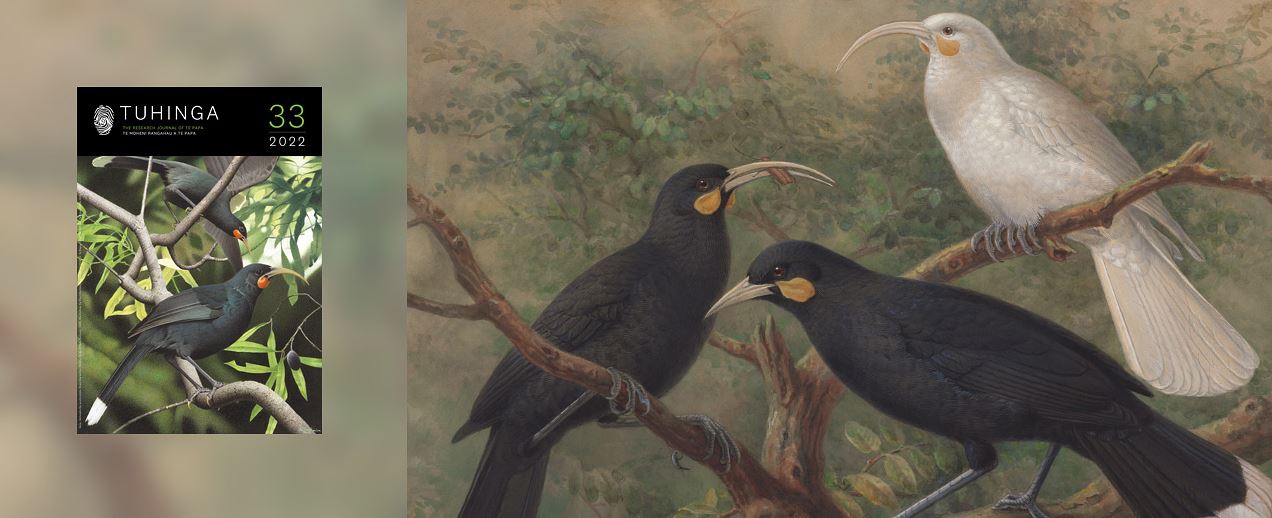Following its move to ARPHA, a publishing platform developed by the scholarly publisher and technology provider Pensoft announced in late 2021, the historic journal of the Museum of New Zealand Te Papa Tongarewa: Tuhinga has already started publishing on its brand new website.
Dedicated to original collections-based research in the natural sciences and humanities, including museological research, Tuhinga takes pride in being associated with nearly two centuries-worth of scientific knowledge provided by the museum’s curators, collection managers, and research associates across disciplines, from archaeology to zoology.
Now, if you visit the ARPHA-powered website and start browsing through and within the published articles, you will notice the way the journal utilises the technological backbone and services provided by the publishing platform.
“ARPHA has provided excellent service in helping us establish the new platform, is always available, helpful and responsive to our needs. The copyediting is a particular highlight for us that ensures the finished articles look fantastic,”
comments Tuhinga’s Editor-in-Chief Rodrigo Salvador.
Various sorting and search options let the user seamlessly navigate throughout the website and enjoy the articles in either semantically enriched HTML or classic PDF format. Meanwhile, non-regular readers of Tuhinga are now more likely to stumble across the journal’s content, since all publications and their underlying data are being instantaneously exported, indexed and archived at a long list of relevant specialised databases. In their turn, a suite of article- and sub-article level metrics allow for usage of different elements to be tracked in real time.
Further, Tuhinga has evolved on the inside too. Having adopted the package of signature services provided by ARPHA, the journal offers to its authors, reviewers and editors the ease of completing their tasks within the publication process without sending a single file outside of the online environment of the collaborative platform.
Next on the list for Tuhinga and ARPHA is the digitisation of the journal’s legacy content, which has so far been existing only in print. The project is set to conclude with those historic scientific contributions becoming machine-discoverable and convenient for the modern reader. The papers will also be assigned with DOI and registered at CrossRef, while their metadata will be indexed at relevant databases. A full-text search of the article’s content will also be available.
“The decision to use ARPHA as Tuhinga’s new platform brings Te Papa’s peer-reviewed journal into the digital ecosystem of scholarly publishing. ARPHA will also help Te Papa provide access to previously published articles from Tuhinga and other historic journals as we work through our digitisation and rights clearance processes,”
comments Victoria Leachman, Head of Collection Access at the Te Papa museum.
***
Visit the new Tuhinga website, subscribe to its newsletter and explore its content to date on: https://tuhinga.arphahub.com/.
***


